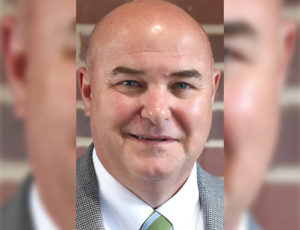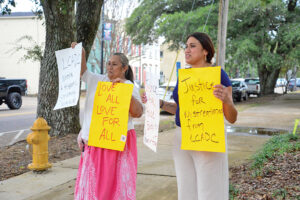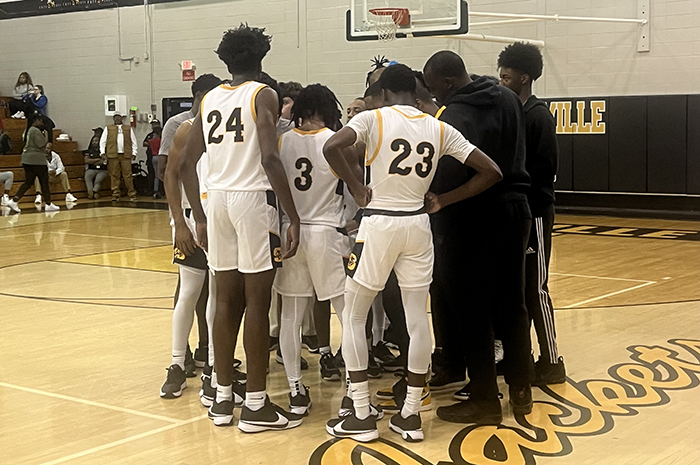Like most people, Eunice Robinson is no fan of weather extremes.
But since February, neither the coldest winter day nor the hottest day of summer strike dread into the heart of the single mother of two as it used to.
“I used to hate to even look at my electric bill when … it was a really cold or really hot month,” said Robinson, who has lived in her 1,000-square-foot home in Artesia for 15 years. “There were months when my electric bill was higher than my house payment. I didn’t know why, but I knew it shouldn’t be that high. There didn’t seem like there was anything I could do about it.”
That’s a thing of the past for Robinson, who works as a teacher’s assistant in the Starkville-Okitbbeha Consolidated School District.
Thanks to 4-County Electric Power Association’s Extreme Energy Makeover program, Robinson said her electric bill is no longer pushing her to the financial brink. Through the program, Robinson’s home is now almost twice as energy efficient as it was before. That translates into precious dollars.
“The first month after they finished, my electric bill was $67,” she said. “Wow. I had never had a bill like that.”
Distributing grants
Robinson is one of 265 low-income homeowners to take advantage of the program, seeing a reduction in their electric consumption from 25 to 40 percent. The program was funded by a $3.8 million grant from the Tennessee Valley Authority.
The program targeted low-income homeowners whose homes were at least 20 years old. While the homeowners had to meet criteria to be eligible for the makeover, 4-County had to show it could save at least 25 percent in electric usage for the home to be eligible.
“I’d say for every home that got approved, there were four more that didn’t qualify for one reason or another,” said Jon Turner, 4-County’s manager of public relations and marketing, who coordinated the program.
After conducting an energy efficiency audit, those homes approved for the program underwent a host of measures to achieve maximum energy efficiency.
“What we mostly found for the types of houses was that they needed a new HVAC system, a new heat-pump water heater, repairs on duct work, air-sealing the homes and, depending on how leaky they were, replacing doors,” Turner said. “Most of the homes needed insulation, too, and we swapped out light bulbs for LED bulbs. Most of the houses needed five or six things. We calculated that the improvements would run about $10 per square foot.”
That’s exactly how it turned out for Robinson.
“They showed me the estimate when I signed the contract,” Robinson said. “All the work came to right at $10,000. There’s no way I could have afforded to do all that. No way.”
Keeping the program alive
Turner said that “rock and a hard place” reality was the driving force behind the program.
“The people who need to make these changes the most are the least likely to be able to afford it,” Turner said. “For us, it was really an eye-opening experience. These people, especially the older homeowners, are really trying to be efficient in the only way they can. Over and over, we saw people who were sitting in the dark, with maybe one lamp on in the house, and not turning on their air-conditioner or heating unit. They just couldn’t afford to do it.
“We realized that for some many of these people, it’s not only reducing their electric bill, it means a better life,” he added.
Robinson said the money she has been saving from a lower utility bill means peace of mind.
“I save probably $60, $70, even $80 a month compared to before,” she said. “That’s money for clothes, food, gasoline, all the things you need. I tell you, it’s been a blessing.”
Turner said the experience has had a profound impact not just on homeowners like Robinson, but for 4-County too.
“The TVA grant was a one-time thing, but it’s become so important for us to keep the program going, even if it’s on a smaller scale,” Turner said. “We’re hoping to use some of the partnerships we made in the community — town and city leaders, charities and other organizations — to keep the program alive. We might not be able to put in new systems, but there are still a lot of simple things that aren’t that costly, that we could do for people.
“We love this program and want to see it continued because we’ve seen how impactful it is,” he added.
Groups or individuals interests in working with 4-County to develop a new program can call Turner at 662-245-0708.
Slim Smith is a columnist and feature writer for The Dispatch. His email address is [email protected].
You can help your community
Quality, in-depth journalism is essential to a healthy community. The Dispatch brings you the most complete reporting and insightful commentary in the Golden Triangle, but we need your help to continue our efforts. In the past week, our reporters have posted 46 articles to cdispatch.com. Please consider subscribing to our website for only $2.30 per week to help support local journalism and our community.







